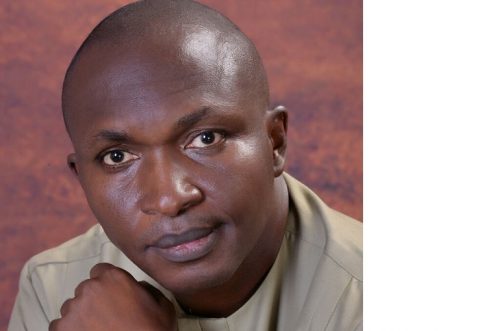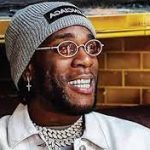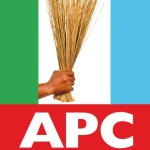OPINION: Encumbered Leadership of a Disoriented Nation
Articles/Opinion, Featured Contributors/Columnists, Latest Headlines Sunday, June 4th, 2017
By Sufuyan Ojeifo
Good leadership is not elusive. It isn’t exactly rocket science. Centuries ago, William Penn established an unusual colony dedicated to the principles of religious tolerance, participatory government, and brotherly love. He believed that “no people can be truly happy if abridged of the freedom of their consciences.”
“Governments, like clocks, go from the motion men give them. And as governments are made and moved by men, so by them they are ruined, too,” said Penn, a philosopher and beneficent colonizer, in his First Frame of Government, written in 1682.
He, thus, further posited, in his rare fecundity: “Let men be good and the government cannot be bad. If government becomes ill, good men will cure it.” This positive view of human nature formed the structure of Penn’s government in Pennsylvania in the United States of America. Penn governed in a seventeenth-century world inured by violence, religious persecution, and arbitrary authority.
Penn’s exemplary model of leadership is what Nigeria needs at this historical intersection to engineer a rapid process of ethical rebirth, religious tolerance and logical authority as against arbitrary authority that feeds on impunity and whimsical breach of due process of law through the raw exercise of executive power, the kind that has assailed our national psyche since attainment of independence.
In his very robust 2015 presidential electioneering that was sated with all manner of juicy promises, Muhammadu Buhari rekindled hope in a people that had, for long, become forlorn. His promise of change was much more electrifying than Goodluck Jonathan’s renewed promise of a hackneyed transformation agenda that had lost its attractions in the haze of media propaganda and shenanigans that were strategically unleashed on the polity to effectively de-market and weaken his incumbency factor.
Jonathan’s administration was portrayed as massively corrupt. Therefore, Nigerians voted for Buhari on the basis of his perceived capacity to fight corruption to the finish. They believed that under his presidency, the nation would witness a glorious epoch of transparency, accountability and better leadership. The nation was somewhat headed in that direction but the bodily frame of Buhari could not withstand the pains and strains of his worsening health condition, which is much of a distraction to a leadership that could have been focused.
Given the complexity of governance and the dialectics of ingrained conservatism that manifests in corrupt and compromised officialdom, Buhari, from the outset, knew he had an uphill task ahead of him. Even if he were hale and hearty, the single fight against corruption, which is an aspect of his administration’s agenda, would have broken him down, especially in a situation where he and, perhaps, his vice president, Proessor Yemi Osinbajo, appear to be only members of the administration who are, to a reasonable extent, committed to the anti-corruption fight.
It is unfortunate that Buhari, the motivational anti-corruption crusader, is sick. This is a major setback in the prosecution of the anti-corruption war. Those appointed to drive the administrative infrastructure of the anti-corruption war are just helping hands whose minds are battlefields of temptations to compromise when it is safe to do so. The commitment and vigour could have been different under a fit president.
But as much as we can acknowledge the commitment of Buhari and Osinbajo to this anti-corruption cause, we cannot also, in any way, excuse them from some blames. The rot in the system is so endemic that it becomes pretty difficult for them to escape vicarious liability in some omissions and commissions by the administration. For instance, can Buhari be free from the charge of nepotism on account of lopsided appointments into public offices?
Can Buhari, a Fulani man, be free from the charge of ethnic/tribal bigotry in the way and manner Fulani herdsmen are being treated with kid gloves despite wrecking havocs to lives and items of property in parts of the country under the guise of cattle grazing? Can Buhari be free of the charge of incitement and/or hate speech when he threatened that the baboon and the dog would all be soaked in blood if what happened in 2011 presidential election was repeated in 2015?
What of the perennial religious intolerance that has seen Christians in some northern states killed, maimed and displaced from their homes? Has Buhari been able to change the narrative? Or what has he done to sensitise Islamic fundamentalists in the north on the need for religious tolerance? When Nigerians expected steps to be taken along that line, that expectation evaporated with the predetermined attack in Zaria, on December 14, 2015, on Sheik Ibrahim El-Zakzaky-led Shiite Muslim group in what was interpreted as an attempt by the majority Suni Muslim group to decimate it and halt its growing influence.
It is remarkable that Buhari has tried to fight corruption, even if the method that has been, so far, adopted has been described as selective and targeting opposition figures. Conversely, the president has not acquitted himself from the charges of nepotism, favouritism, tribalism and/or ethnicity, religious bigotry, et al, which are various dimensions of corruption. These and other variants of corruption are symptomatic of a bad government and any encumbered leader whose heart, rather than being a cathedral of righteousness, has become an arena of debauchery and ungodly compromises.
And these are symptoms that are wont to challenge conscionable and conscientious global leaders, who crave the institutionalisation of enduring legacies in government, to take action. Leaders like Penn, John F. Kennedy, Abraham Lincoln, Franklin Delano Roosevelt, Lee Kuan Yu, Nelson Mandela, etc., have had their names etched positively in the sands of time. They stepped in the saddle and helped to ensure positive leadership narratives in their domains.
In the absence of visionary leaders who are patriotically committed to the well-being of the nation and its people, there is no way government will not be the way it is in Nigeria today – bad. A disoriented nation has inextricably crystallised. Our nation is, indeed, in the throes of confusion. How can the vast majority of Nigerians be wallowing in the pool of abject poverty with the stupendous natural resources, apart from crude oil, that are buried underneath her soil?
Why will Nigeria not be disoriented when successive administrations have failed abysmally woefully to galvanise savings and investments from the billions of petro-dollars earned over the years? Why will Nigeria not be disoriented when its leaders, acting in concert with their prefects, embark on mindless looting of the public treasury, turning the nation into a criminal enterprise? What do we expect to see in situations where those elected as presidents, governors and local government chairmen collaborate with contractors to divert the nation’s commonwealth into private pockets?
This is the problematic narrative that the Buhari/Osinbajo presidency was voted into power to rewrite. Nigerians are tired of excuses even though Buhari is understandably weighed down and unable to do the little that he was expected to contribute in the area of anti-corruption war. Osinbajo is holding the forte and doing his limited best in the shadow of his boss. Nevertheless, the administration needs the clear-headedness and single-mindedness of these two men to cure our nation and bring about her re-orientation. Time will tell whether or not they will be able to do this.
Mr Ojeifo contributed this piece from Abuja via ojwonderngr@yahoo.com
Related Posts
Short URL: https://www.africanexaminer.com/?p=39554




















